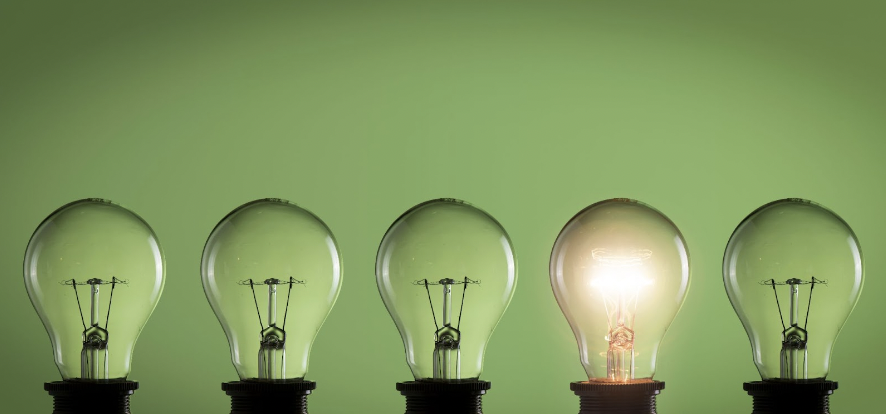|
11/14/2022 0 Comments Less is MoreIt’s easy to think that the more we take on in our professional or personal lives, the more successful or fulfilled we will feel. We think to ourselves, “I can squeeze a little more out of an hour here”, or “I’ll just work a little later tonight to finish up my to-do list.” It’s a trap we can all fall into, and before we know it, reaching a “work-life balance” feels like a totally unrealistic goal.
In our work at Professional Learning Partnerships, we aim to transform learning and leadership by leveraging key ideas from brain science that allow students and adults to thrive. One of the biggest misperceptions that people have about our brains is that we can “multitask” (doing multiple tasks that take focus simultaneously), and that “multitasking” leads to higher productivity. Research shows it’s actually the opposite – our brains aren’t actually capable of “multitasking”. Instead, our brains are “task-switching”, switching back and forth between multiple tasks that require our attention and focus, only truly allowing us to focus on one task at a time. Research shows that the more we task-switch, the more mistakes we make, the longer it takes us to do each of those tasks, and the more tired and drained we become (American Psychological Association, 2017; Betts et al., 2019). When we attempt to “multitask”, more is actually less. What would research suggest about how we actually achieve more, with better creativity, quality, and happiness? Less is more. When we are able to prioritize fewer more important goals and tasks in a day, as well as prioritize meaningful parameters for our job roles, research suggests we are more likely to accomplish those with better quality, more creativity, and more satisfaction. We have more cognitive resources to dedicate to important work and feel less drained as compared to when we stretch ourselves too thin and juggle too many responsibilities. New studies even show that the closer your cell phone is to your desk when working, the lower your working memory and fluid intelligence will be, even if you never interact with your phone at all (Ward et al., 2017)! Even the temptation to check your messages is enough distraction to impede clear thinking, attention, and productivity. The saying we use over and over again in our professional learning work with PLP partners is Less is Always More. Whether we’re guiding teachers in how to design a meaningful lesson for students, or supporting administrators in how to create an impactful presentation for their school board, or coaching a professional team on ways to maximize collaboration by clarifying roles and communication, the key concept is the same – identifying fewer priorities allows for better and faster results. When you focus on achieving a shorter set of important and meaningful goals, you’ll do it more effectively and theoretically feel more fulfilled because the work was purposeful. When you work to communicate a more concise message through teaching or presenting, the people involved will feel less overwhelmed by trying to remember or understand too much, and can more easily concentrate on your simple and important message. Some critical questions you can ask yourself to see if you can focus on less in your work are:
It can be an uncomfortable shift to downsize our mental workload because it feels like we will lose a little control, or disappoint peers, colleagues, or loved ones. Or some of the tasks we don’t like are mandatory parts of our job, and we can’t get out of them. BUT, the place we have the most agency and regain our empowerment is within the areas of our work or life that we CAN control, which is usually more than we realize. Look at the areas of your work or personal life in which you have control, and begin to think, “Where can I do less, so I get more meaning and more enjoyment from my time?” Start small. The breathing room we get back to focus on what matters most in our work (and life) helps us sustain the passion, energy, and motivation we need to do our work well in the long-run. About our guest writer: Julia Skolnik, MSEd is the Chief Learning Officer & Founder of Professional Learning Partnerships (PLP), an organization committed to transforming learning and leadership through applying key ideas from brain science in long-term partnerships with schools and districts. Julia leads the design and facilitation of research-based professional learning and coaching for educators and leaders, and cultivates sustained partnerships with a growing network of innovative districts across the U.S. Her passion for connecting the science of learning with the practice of education has continued to grow over the last 20 years working in a variety of settings including schools, research laboratories, universities, and museums.
0 Comments
|
Archives
November 2023
|
Photos from wuestenigel, wuestenigel, wuestenigel, markus119, cowbite, mikecogh, shixart1985, symphony of love, kennethkonica, homegets.com, wuestenigel, quinn.anya, Chuckcars, Dave Hamster, mikecogh, wuestenigel, debaird™, wuestenigel, shixart1985, trekkyandy, frankieleon, Sue90ca MORE OFF THAN ON, WarmSleepy, symphony of love, Marcus Hansson, Cliff Johnson, Leonard J Matthews, Archives Branch, USMC History Division, tmray02, Rawpixel Ltd, joostmarkerink, Andrew Gustar, Thomas James Caldwell, Dano
